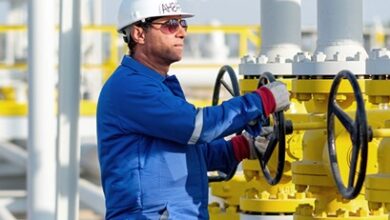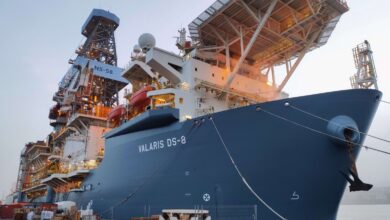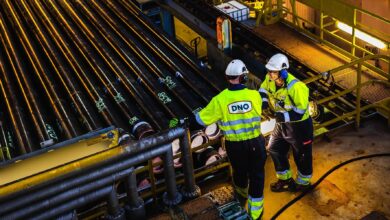Miller: Vibrant MINT economies likely to support industry growth
By Lauren Wolfson, editorial assistant

With the unexpected underperformance of Brazil, Russia, India and China (BRIC), perhaps the industry should look beyond toward other emerging economies – including Mexico, Indonesia, Nigeria, Turkey (MINT), as well as similar countries such as Vietnam and Singapore, Merrill A. “Pete” Miller Jr., National Oilwell Varco (NOV) Executive Chairman, said at the API/IADC Houston Chapter Luncheon last month in Houston. With vibrant economic and social changes, “MINT is where the growth is going to come from,” he said, noting in particular that Mexico could be a hub for industry manufacturing.
Civil unrest has presented a greater challenge than expected across the BRIC countries, stunting their growth, Mr Miller said. He cited the lack of a developed middle class in Brazil and Russia and civil tensions within all four countries as factors that have impeded expected growth. This has impacted the industry in many ways, including “whether or not we’re going to get product out of there, whether or not they are going to use oil and gas, and whether or not it’s going to make our business much more vibrant.”
On the other hand, the potential of the MINT countries is growing. Mr Miller suggested that other vibrant economies, such as Mexico, Vietnam, Singapore and Nigeria, are seeing growing middle classes and increasing demand for oil and gas. “The MINTs are really where the action is going to be when you take a look over the next 10 years,” he said, suggesting that companies must position themselves for maximum flexibility and international reach.
This will help the industry to prepare for the inevitable ups and downs as oil and gas prices fluctuate along with the growth of developing economies around the world, he said.
In addition to MINT growth, shale and ultra-deepwater plays around the world also will help bolster strength of the energy market, but this means that the industry must remain ahead of the curve when it comes to technology. Here, the US is still at an advantage, he said. “The most important thing you can do today is have technology.”
Technologies developed in the US – fixed cutter bits, top drives and efficient AC-powered rigs, for example – all continue to contribute significantly to the successful drilling of wells around the world. Fit-for-purpose onshore rigs also continue to facilitate operations in challenging basins, such as the Marcellus, where companies must be able to rig up on very small locations. Offshore advances also has enabled the industry to reach farther and into deeper waters, with 12,000-ft water depths becoming the norm for ultra-deepwater. Mr Miller projects that, in five years, technology will enable the industry to operate in depths of 20,000 ft or more.
He explained that countries around the world have the desire to implement such advanced technologies into their projects, placing the US in the spotlight for innovation. “In Houston and in the US, we’re doing things that are going to be replicated around the world, and we really are leading the way.”
Ultimately, continuously expanding industry technology will enable companies to positively impact the world’s energy supply while also “emphasizing personnel safety and emphasizing well safety.” In particular, automation technologies will continue to lighten the physical demand on rigs crews and push operations offsite and toward remote monitoring. “The technology is not only there for safety, and it’s not only there for efficiency, but it’s also there to make a much more pleasant work environment for the employees that we have out there,” Mr Miller said.




